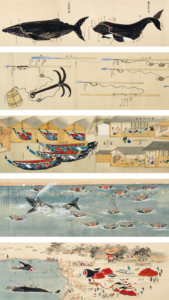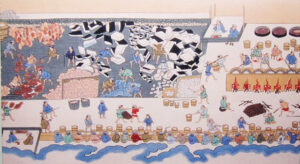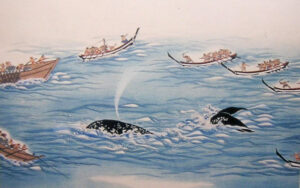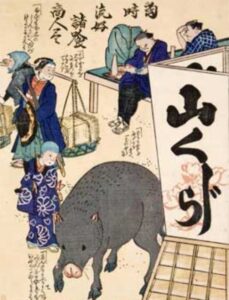This week, we’re taking on whaling in Tokugawa Japan. What is ‘traditional’ whaling in Japan? How and why did people take to the seas to hunt whales? And how is all of this wrapped up in the modern debate around whaling in Japan?
Side note: wet weather in Seattle is giving me mad allergies, so apologies if I sound extra sniffly or anything.
Show notes here.
Sources
Arch, Jakobina K. Bringing Whales Ashore: Oceans and the Environment of Early Modern Japan.
Hanley, Susan B. “A High Standard of Living in Nineteenth-Century Japan: Fact or Fantasy?” Journal of Economic History 43, No 1 (Mar, 1983)
A fascinating story on the tests that found whale oil’s similarities to DDT.
Images






Remember whale oil will also be powering our spaceships, like the Planet Express Ship, in the 31st century after dark mater goes inert.
More seriously though, I find it interesting how the whaling industry seems to be appropriating the language utilized by indigenous peoples living in the arctic circle. As I understand it, their practice involves going out on much smaller craft, often things like kayaks (but maybe some larger boats) in order to provide subsistence for villages. The language about “respect for the animal” also seems to be taken from how many indigenous peoples. From what you described it sounds like Edo Period techniques were similar to the people in the Arctic circle do, but it’ s pretty clear that Japan stopped using those methods and favoring more industrial means of catching whales.